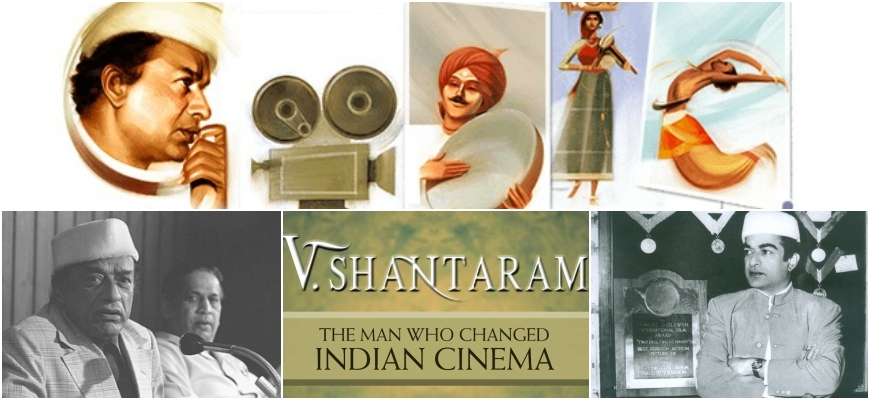Recalling V. Shantaram who gave ‘Golden Wings’ to Indian Cinema back during ‘Golden Era’
Mumbai, November 18: Only few prominent names have carved history in the world of ‘Indian Cinema’, one of the names amongst them is V. Shantaram. Recalling the legendary player of ‘Film Industry’, Nation recalled V. Shantaram today with an honour. Shantaram Rajaram Vankudre was the name written in ‘Bold Golden Letters in the world of Indian Films’.

Known by the name of Shantaram Bapu, he made his mark in all three areas of the producer, director and actor. He used many new concepts as a director in Indian cinema for the first time. For nearly six decades he was working in the film industry.
Today Google Doodle has offered the tribute to mark the 116th birthday. It has sown his three best films. The doodle shows protagonists from Shantaram’s Amar Bhoopali (1951), a true story of a cow herder with a gift for poetry, set in the days of the Maratha Confederacy; Jhanak Jhanak Payal Baaje (1955), a film about love and classical Indian dance, which was among the first in India to use technicolor; and Do Aankhen Baara Haath (1957), which is the story of a jail warden who tries to reform dangerous prisoners.
V Shantaram’s journey towards ‘Cinema’ began way back in 1950. His career started from 'Maharashtra Film Company' owned by Baburao Painter in Kolhapur. In the 1921 film 'Surekha Haran', which was a part of the company's work, there was a small role in the silence.
In 1929, he founded the Prabhat Film Company along with Vishnupant Damle, KR Dhaiber, S Fatelal and SB Kulkarni. The production house made the first Marathi language film, Ayodhyache Raja (1932), which he directed.
He left the company in 1942 to form the Rajkamal Kalamandir in Mumbai. Rajkamal would go on to become the country’s most sophisticated studios. Shantaram won the Dadasaheb Phalke Award in 1985. 'Gopal Krishna', 'Rani Saheb', 'Khuni Khangar', 'Udayakal', were another hit films given by Shantaram.
Further the movie 'Sant Tukaram', which was formed in the year 1937, became the milestone in Indian cinema. In India especially in Maharashtra - this film ruled for many years. Through this movie his fame went to Satara. This movie was screened at the Venice Film Festival.
V Shantaram’s films were ahead of time, in terms of selection of subjects for the film, his intent, camera technique, compilation. He knew that the film is a medium of entertainment and entertainment, but it can also effectively communicate the message to the community. Many leaders recalled V Shantaram: